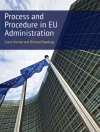The book provides a sound base level of knowledge of the substantive law. It then adds to this knowledge to ensure that students are able to apply the substantive law using a variety of skills in different contexts. Then, the text shows students how to engage with the subject and critically evaluate and consider the implications of the law in any given scenario. It is essential that students understand the dynamism of criminal law and ask the difficult questions that have been, and remain to be, pondered by academics. As such, the book also considers the social, economic and political context.
This new edition of Criminal Law aims to present the law as of June 2020 and discusses recent cases on the following topics:
• causation (Wallace (Berlinah))
• dishonesty (Barton; Booth)
• knowledge and strict liability (Lane and Letts (AB and CD))
• accessories (Tas, Harper and N)
• householder self-defence (Cheeseman)
• evidence of self-defence and level of acceptable force (Pegram v DPP)
• intoxicated mistakes in self-defence (Taj)
• diminished responsibility (Challen) and in uncontested medical evidence (Hussain and Sargeant)
• gross negligence manslaughter (Winterton and Kuddus)
• deception as to identity and attributes (Melin)
• loss of self-control (Goodwin and Christian)
• infanticide (Tunstill)
• aggravated burglary (Eletu)
Inhaltsverzeichnis
PART I: GENERAL PRINCIPLES
1. Introduction to the Criminal Law
2. Actus Reus: The External Element of Crime
3. Mens Rea: The Mental Element of Crime
4. Parties to a Crime: Principal and Secondary Offenders
5. Inchoate Offences
6. Vicarious and Corporate Liability
7. Defences to Liability
PART II: OFFENCES AGAINST THE PERSON
8. Fatal Offences
9. Non-Fatal Offences
10. Sexual Offences
PART III: OFFENCES AGAINST PROPERTY
11. Theft and Related Offences
12. Other Theft Act Offences
13. Fraud and Related Offences
14. Damage to Property
Über den Autor
Mark Thomas is a non-practising barrister and Senior Lecturer in Law at Nottingham Trent University. Mark previously taught law at the University of Sheffield at both undergraduate and postgraduate level. Mark’s teaching is heavily focused on the law of crime, evidence and property law, and he has published numerous research and textbook publications in those areas.












